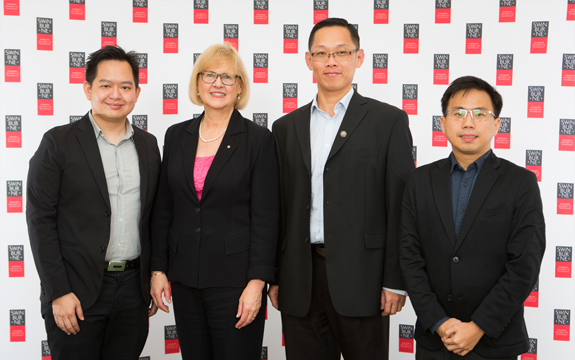Swinburne staff and students at the Sarawak campus in Malaysia are lighting the way to a sustainable future in rural communities.
The Swinburne Humanitarian Technology Activity Team is harnessing renewable energy to improve community safety and engagement, and promote a healthy lifestyle.
Students, volunteers and staff initiated the ‘Alternative Lighting Project’ in Kampung Pulau Salak, a remote fishing village not far from the state capital of Kuching.
The team was honoured for its contributions at the 2019 Vice-Chancellor Awards, receiving a Community Engagement Award for promoting the benefits of clean energy to locals and school children in rural areas.
Power of the sun
In September 2018, the team installed 50 solar-powered, motion sensor wall lights and street lights along the main travel routes – for example, to the town hall, boat jetty and school, SK Salak – to guide the villagers at night.
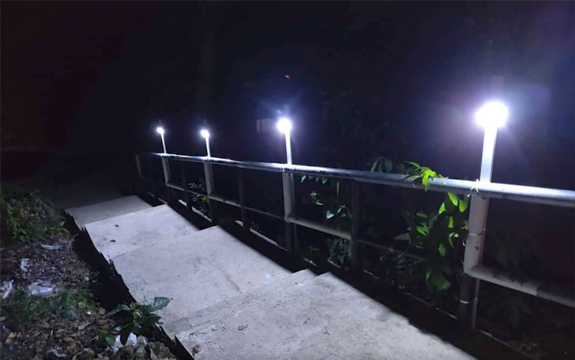
Solar lights brighten main pathways at night.
The initiative improved community safety and extended activity hours, promoting a better quality of life and wellbeing for local residents.
Have wheels, make energy
The second phase of the project, ‘Free Energy: Calories into Electricity’, took an educational approach.
The team installed LED-based street lamps around the school library in July 2019, which were connected to a generator powered by a bicycle.
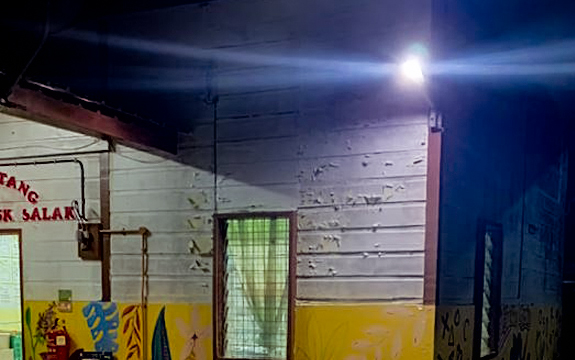
Swinburne students from the Sarawak campus installed LED lights around the school library.
The kinetic energy produced by movement was converted to electrical energy using an alternator on the bicycle.
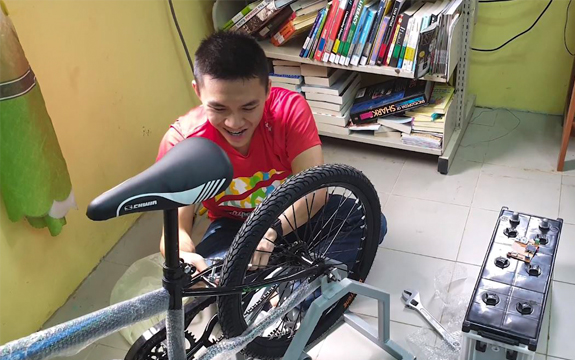
A Swinburne student connects the bicycle to a generator.
Children embraced the concept with enthusiasm, and were eager to learn about solar energy, physical exercise, science and technology in the classrooms of SK Salak.
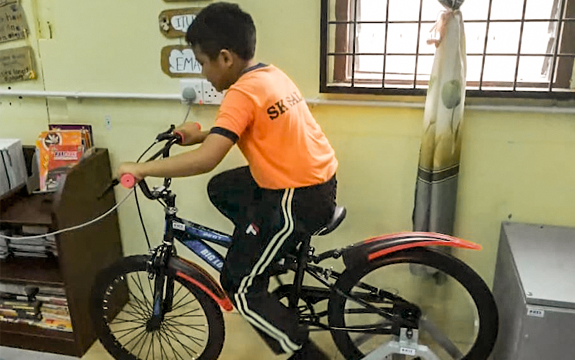
A young student from SK Salak uses pedal power to drive the generator.
Sarawak shines
The project aligns with Swinburne’s 2025 Vision and Strategy, by preparing students for work as future engineers and nurturing community through innovation, education and technology.
It also adheres to the UN Sustainable Development Goals to provide quality education and affordable, clean energy.
Project leader and lecturer with the Faculty of Engineering, Computing and Science in Sarawak, Dr Then Yi Lung, says there are benefits for the whole community.
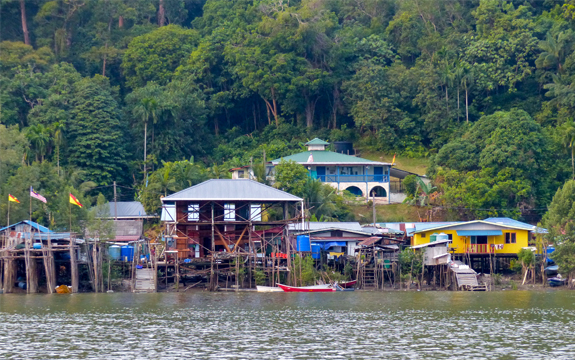
Residents of Kampung Palau Salak live peacefully by the Batang Salak river, Malaysia.
“The significance of this project is to extend technology into helping the rural community by applying science knowledge into real practice,” he says.
“This project allows SK Salak to become the first school in Sarawak which connects renewable energy with physical exercise, and it can be a role model among other rural schools for cultivating sustainable technology and education.”
Dr Then also notes the advantages for the Swinburne students who joined the Swinburne Sarawak Student Branch of the Institute of Electrical and Electronics Engineers (IEEE) as volunteers.
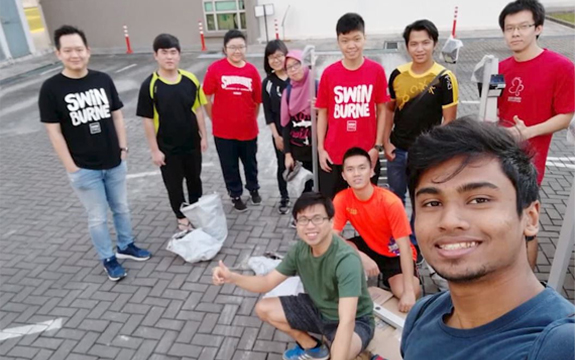
Staff and student volunteers from IEEE Swinburne Sarawak Student Branch.
“The students involved get a first-hand experience in surveying the village, project planning, project coordination and executing the plan under the supervision of their academic mentor,” he says.
“They are more responsible to take an active role in this community, and work with other volunteers to make our world a better place to stay.”
Financial support from the Malaysian energy development company, Sarawak Energy Berhad, and advice from the IEEE Malaysia Sarawak Subsection made the project possible.


